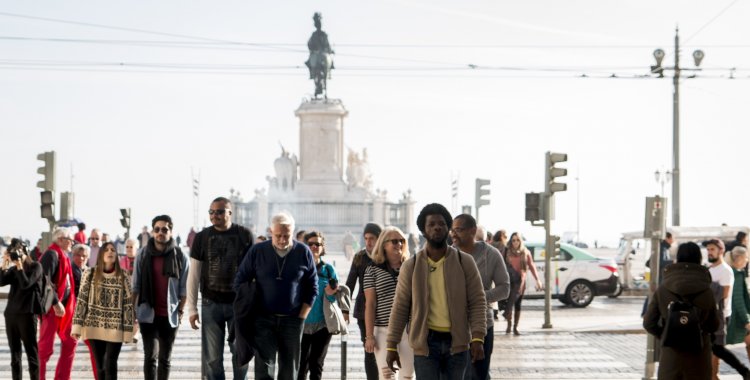Speaking to Lusa, by telephone, the Deputy Minister of Parliamentary Affairs, Ana Catarina Mendes, said she hoped that the diploma would enter into force within "30 days" and that "it will take effect this year".
According to the statement from the Council of Ministers, the Portuguese Government "approved today the regulatory decree that amends the diploma that defines the conditions and procedures for the entry, stay, departure and removal of foreigners from the national territory, following the recent changes to the Foreigners Law. ".
The approved amendments "promote mobility and freedom of movement within the Community of Portuguese-Speaking Countries (CPLP), allowing the implementation of the Agreement on Mobility", signed between its nine Member States in July 2021 at the Summit of Heads of State and Government in Luanda, the note stresses.
In this context, it highlights "the preliminary granting of CPLP visa applications" and the "waiver of presentation in person for visa application" for citizens of that community, among other measures.
CPLP citizens are also exempted from presenting a set of documents for issuing a visa, such as valid travel insurance, which covers expenses necessary for medical reasons, including urgent medical assistance and eventual repatriation.
However, they are also exempted from presenting proof of the existence of means of subsistence in Portugal and a copy of the return ticket, except when a residence visa is requested.
In addition, the granting of a CPLP residence visa gives the holder the right to apply for a CPLP residence permit.
In the note, the Government assumes that these changes "are still intended to contribute to the response to the need for manpower with a view to revitalizing the economy".
But the executive also stresses that "the new regime also promotes regular, safe and orderly channels of migration, reinforcing the fight against illegal immigration and trafficking in human beings".
The Prime Minister of Portugal, António Costa, announced that the Government had approved the regulations for the entry into force of the mobility agreement in the CPLP, which will facilitate the entry into Portugal of citizens of these countries.
"Today, the Council of Ministers in Portugal has just approved the diploma that definitively regulates the application of the CPLP mobility agreement, which we signed a little over a year ago in Luanda and which promotes circulation and mobility within the space of CPLP", said António Costa.
The head of the Government was speaking in Maputo, at the joint press conference with the President of the Republic of Mozambique, with whom he was meeting within the scope of the V Luso-Mozambican Summit.
According to António Costa, "all citizens of a CPLP member state who apply for any type of visa to enter Portugal, this visa must be immediately granted, immediately granted, unless there is still an expulsion order or there is an interdiction order in the Schengen area".
"Otherwise, the Portuguese consular services must immediately proceed with the issuance and granting of this visa", he said.
Considering that "it is important to strengthen cooperation within the scope of the Portuguese-speaking world", the Prime Minister defended that this "is a very important step so that the excellence of relations in political cooperation that has existed within the scope of the CPLP, economic cooperation also translates into in the concrete day-to-day life of citizens".
Angola, Brazil, Cape Verde, Guinea-Bissau, Equatorial Guinea, Mozambique, Portugal, São Tomé and Príncipe and Timor-Leste are the nine member states of the Community of Portuguese-Speaking Countries.







